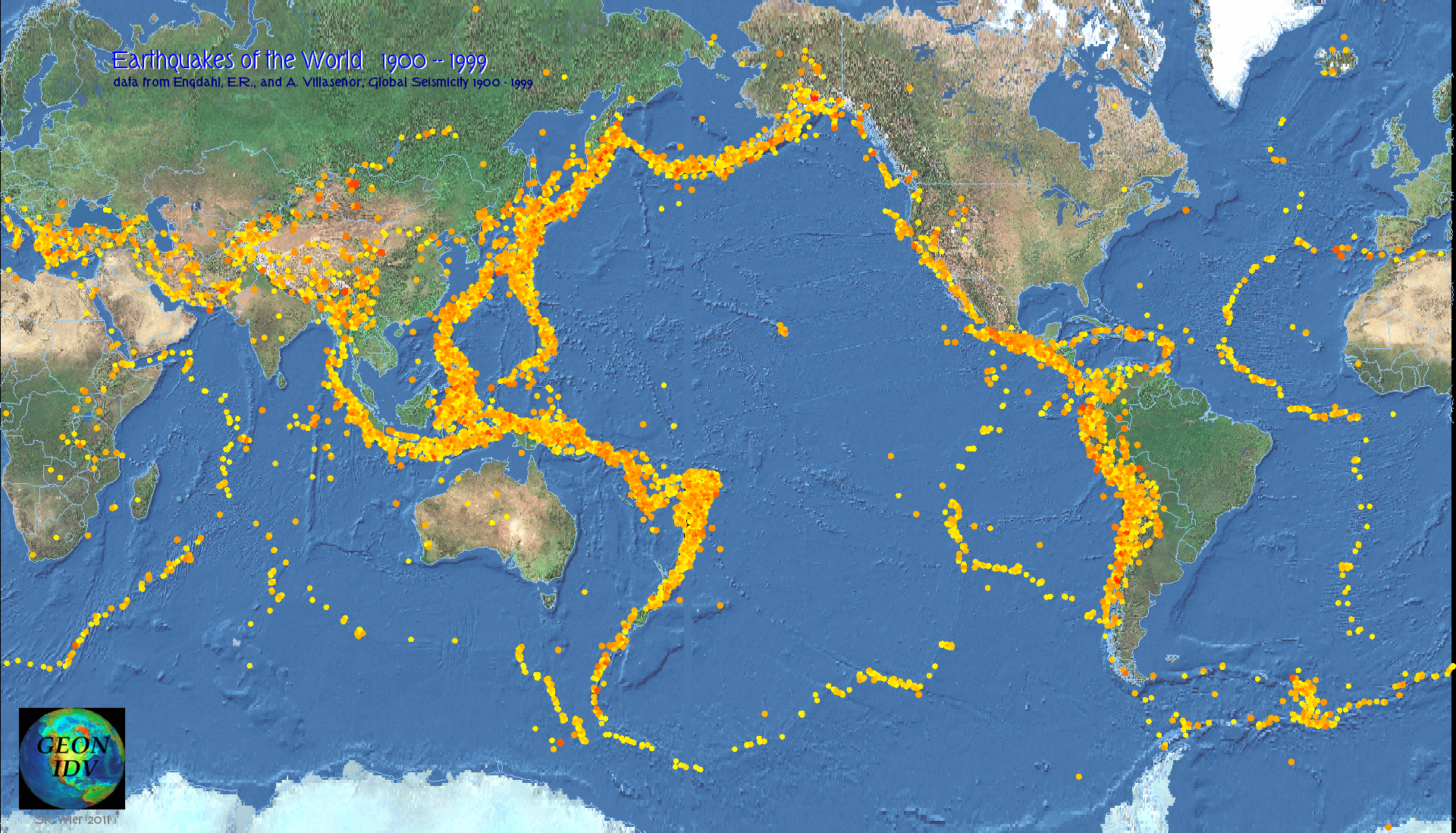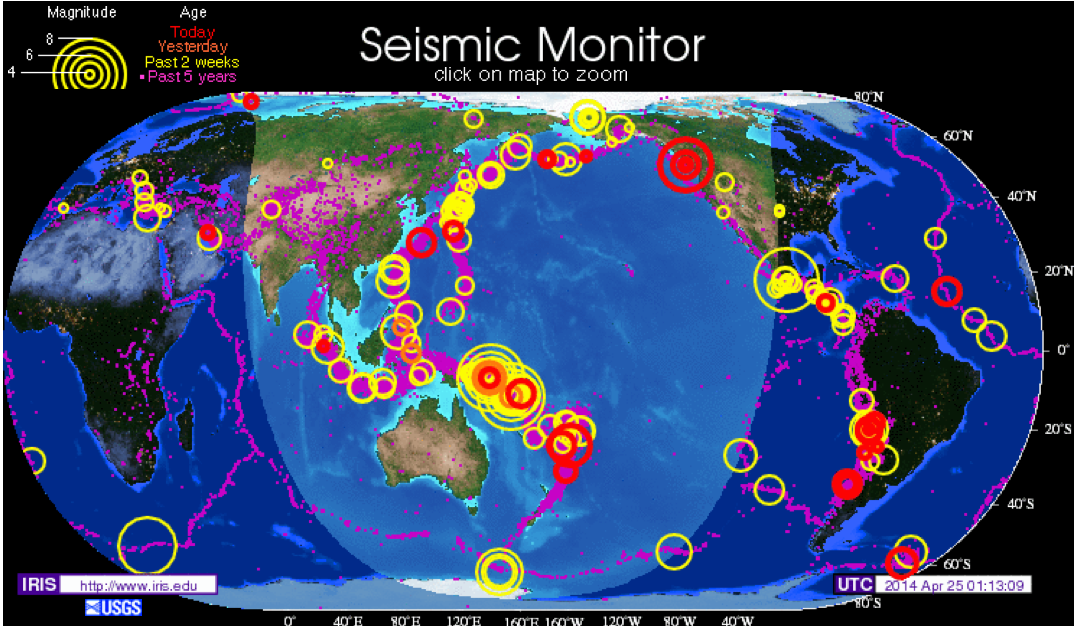Earthquakes:


An earthquake (also known as a tremor or temblor) is the result of a sudden release of energy in the Earth's crust that creates seismic waves. Earthquakes are recorded with a seismometer, also known as a seismograph. The moment magnitude of an earthquake is conventionally reported, or the related and mostly obsolete Richter magnitude, with magnitude 3 or lower earthquakes being mostly imperceptible and magnitude 7 causing serious damage over large areas. Intensity of shaking is measured on the modified Mercalli scale. At the Earth's surface, earthquakes manifest themselves by shaking and sometimes displacing the ground. When a large earthquake epicenter is located offshore, the seabed sometimes suffers sufficient displacement to cause a tsunami. The shaking in earthquakes can also trigger landslides and occasionally volcanic activity. In its most generic sense, the word earthquake is used to describe any seismic event—whether a natural phenomenon or an event caused by humans—that generates seismic waves. Earthquakes are caused mostly by rupture of geological faults, but also by volcanic activity, landslides, mine blasts, and nuclear experiments. An earthquake's point of initial rupture is called its focus or hypocenter. The term epicenter refers to the point at ground level directly above the hypocenter
What can you expect to happen?
Earthquakes happen without warning. They can happen any time of day, at any point during the year. Almost all place in Andaman & Nicobar Island can experience earthquakes, both small and big. Sometimes an earthquake will be so small you’ll barely feel it. Other times an earthquake will cause the ground to shake so much that buildings and bridges collapse. Fires, landslides, avalanches, and flash flooding might even happen.
Stay alert for aftershocks, which are smaller earthquakes that follow the main one. Aftershocks could happen within a few hours of the main earthquake, or they could happen weeks or months later.
You will never have warning that an earthquake is coming. To make sure you and your house are prepared, you should:
- Secure cupboards and bookcases to the wall using bolts. Also try to keep heavy objects on lower shelves so they won’t fall on you during an earthquake.
- Make sure your water heater is secured to a wall. That way, it won’t fall during an earthquake and hurt someone or start a fire.
- If you live in an area that has a lot of earthquakes, make sure that your home is bolted to your foundation. Although this might be expensive, it could save you from a lot of damage to your house during an earthquake.
Here are some tips of what to do during an earthquake:
- Do NOT go outside. You could get hurt from falling glass or parts of buildings. If you are outside, stay away from buildings and power lines.
- Take cover under a desk, table, or other large and stable piece of furniture. Hold on to it. Or, stand in a doorway and brace yourself.
- Stay away from windows, heavy furniture, appliances, mirrors, pictures, and anything else that could fall and hurt you. Also stay away from fireplaces. You could lose your balance and hurt yourself on the fire.
- If you are driving when an earthquake happens, stop the car if it’s safe. Stay inside your car until the earthquake stops, and don’t drive near bridges or tunnels. Try not to stop by power lines, light posts, signs, or trees. These could fall and hurt you.
- Stay alert for falling objects. Most people get injured by falling objects during an earthquake, not by the shaking itself.
- Do NOT use matches, lighters, or candles. If there is a broken gas line, you could spark a fire or explosion.
- Do NOT use elevators. There might be a power outage due to the earthquake, and you could get stuck in the elevator.
After the earthquake stops, here’s what you should do:
- Check yourself and others for injuries. Call 100 if you or someone else needs immediate medical assistance. If the phone lines are not working, try using a cell phone.
- Check to see if electric, water, and gas lines are damaged. If Yes inform near Police Station.
- Stay away from damaged buildings and areas. You could get hurt by broken glass and falling objects.
- Listen to the radio for more information.